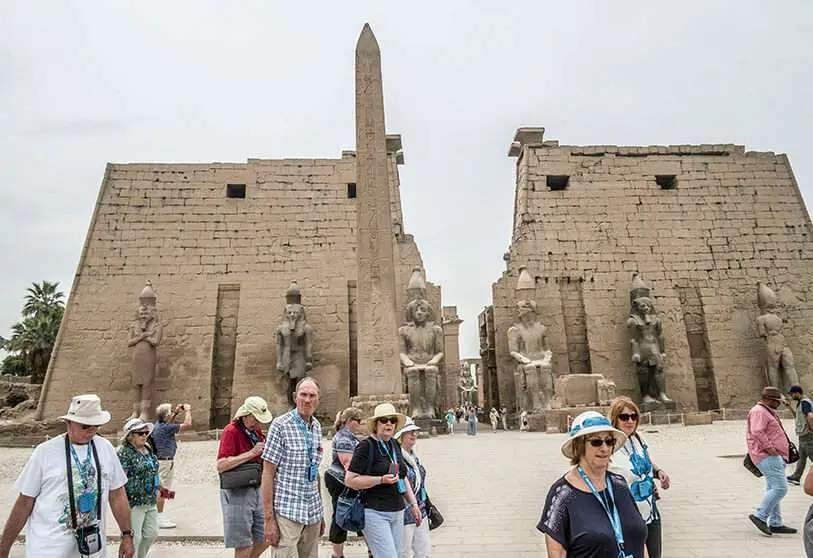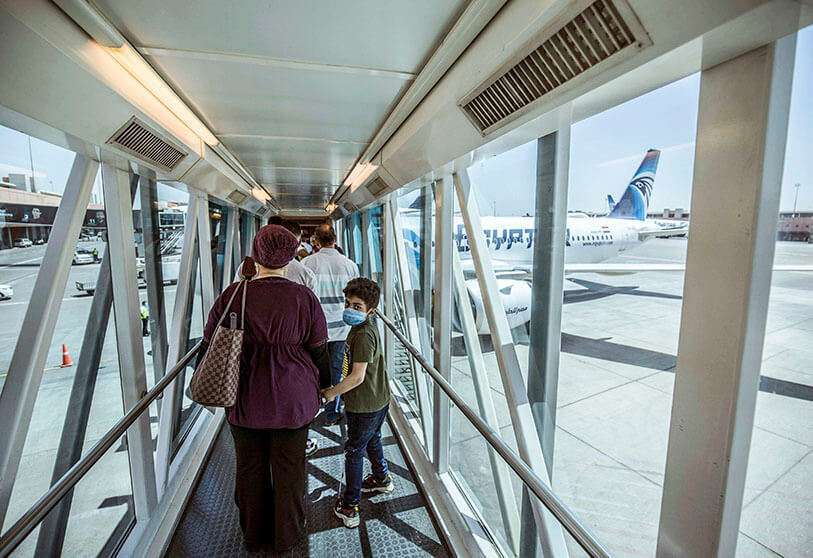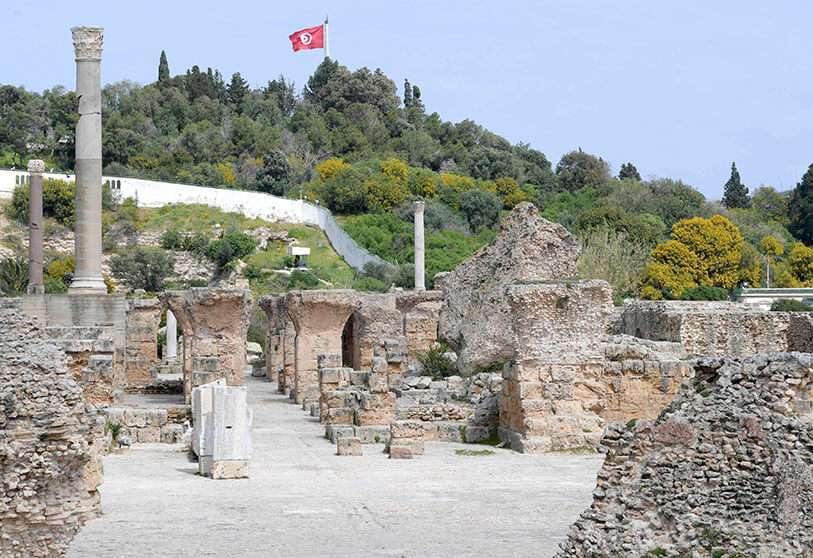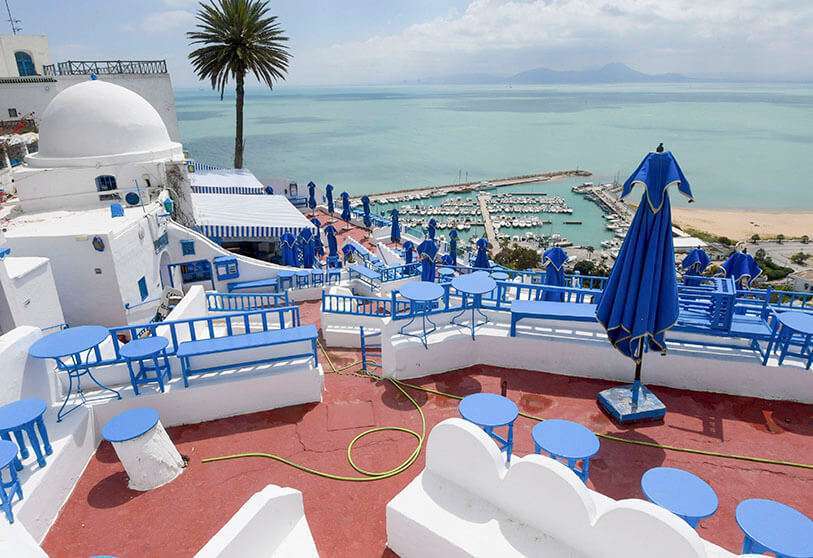A la caza del turista europeo

The rivalry for the European tourist has never been as fierce in the Mediterranean as it was this summer. Morocco, Tunisia and Egypt are preparing to welcome travellers from the other side and save the furniture this tourist season, despite the pandemic. Tourism is a very important source of wealth for the region and also one of the industries that has been hit the hardest in recent months. That's why these countries are trying to prepare protocols in record time to provide security for foreign visitors.
Egypt, where tourism represents more than 11% of the GDP, has already announced that its airports will reopen to international traffic on July 1st, after having suspended all commercial flights since March 19th. The Minister of Aviation, Mohamed Manar, has assured that all preventive measures have been taken at Egyptian airports, such as disinfection of aircraft before each flight, the use of mandatory masks for all passengers and crew, and other health regulations for all airport personnel.

The first places in the country to receive passengers will be the coasts of the Red Sea and the Mediterranean Sea, which are the provinces with the least number of infections. The payment of the tourist visa has been cancelled for all those travellers who fly directly to the tourist provinces until October 31st to encourage reservations. The Ministry of Civil Aviation has also offered discounts of up to 50% on airport fares for charter flights in all tourist locations and 20% on ground services.
Although summer is the low season for Egypt, due to high temperatures, the authorities do not want to give up on receiving travellers and are encouraging travellers to return to Red Sea locations. Despite tourist claims and discounts, infections and deaths from coronavirus have not stopped growing in recent weeks and the pandemic is not yet under control in the country.
These two North African countries have adopted two very different strategies in addressing tourism recovery. Both have tackled the pandemic with similar measures and similar results: strict containment and few deaths and infections. Morocco, with 35 million inhabitants, has recorded 217 deaths and 11,248 infections, according to this Friday's update from Worldometers. Tunisia, with 11.5 million inhabitants, has 50 deaths and 1,112 infections.

The Tunisian government has announced a rescue plan for the Tunisian tourism sector, which has suffered losses of up to 2,000 million euros and has assured that the country is ready to welcome tourists again, giving priority to nationals and those travelling from neighbouring countries. The sector represents 14% of GDP and generates 400,000 direct and indirect jobs. The country has announced that it will open its borders on 27 June. The first stage of the rescue plan will involve the creation of a 160 million euro fund to guarantee credit for small businesses affected by the health crisis.
The requirements for obtaining this aid will be to maintain jobs and pay salaries in full, as well as to register losses of at least 25% in March and 40% in April compared to the previous year. These low-interest loans, with a limit of 25% of the previous year's profits, will be available until March 2021 and can be repaid over a period of seven years, with the possibility of freezing them for a further two years.
The government has also launched a campaign to relaunch tourism in the country: "Tunisia ready and safe" to attract travellers and wants to diversify the offer beyond the beach and spa mantra, with alternative destinations such as the desert south - which occupies 30% of the territory - or its 2,000 archaeological sites, although, for the moment, it is difficult to compete with its nearly 1,200 kilometres of coast. The authorities are also considering expanding the digitalization of the sector. Until May 10, the tourism sector had achieved a profit of 317 million euros, 27% less than last year. In 2019, after five years of crisis, the country managed to recover figures prior to the revolution of 2011 with nearly nine million tourists.

However, Morocco is acting much more cautiously for fear of further outbreaks. Although the resumption of tourism and hotel activity has already been announced with a capacity of 50%, it is for the time being limited to domestic tourism. The borders remained closed and Operation Crossing the Straits, through which more than three million Moroccans living in Europe returned to the country each year to spend their holidays with their families, had been suspended.
Saadeddine El Othmani, President of the Government of Morocco, has insisted on the need to reactivate the activities of the tourism sector in the de-escalation, but has stated that this must be done in accordance with safety regulations at all times. "We are aware of the importance of tourism for our economy and everything that contributes to the wealth of the country," El Othmani said during a meeting with businessmen in the sector last week, picked up by Bladi.
The General Confederation of Moroccan Companies has pointed out that there is still much uncertainty regarding tourism and they assure that the recovery after the coronavirus health crisis will be very complicated. "The ecosystem of the tourism sector needs specific measures and particular attention," said Chakib Alj, president of the employers' association, who recalled that the sector generates foreign exchange worth 80 billion dirhams (equivalent to 7.3 billion euros)
The employers have prepared a series of measures to save the sector, both in terms of wages and taxes, to relieve companies operating directly or indirectly in the sector. These proposals are part of a battery of 508 measures that the employers have presented to the Government to save the economy after the health crisis. The main measures in this package propose strengthening demand and stimulating public investment, relaunching supply, reducing taxes and claiming long-term loans that are awaiting a response from the Government. The problem for the sector, however, is that the borders are still closed and it is not yet known when they will be opened.
Another country with a great capacity to attract tourists in the Mediterranean is Greece. The Greek country has managed to contain the coronavirus and has very good epidemiological data. Only 191 deaths and 3,130 infections in a nation of 10 million people. Since mid-June, flights to Athens and Thessaloniki have been resumed and as of July 1st, flights to all regional airports have resumed. The capacity of health centres has been strengthened and, in tourist areas, fines have been levied on premises that do not comply with capacity constraints. The good prices offered by the country make it a serious competitor for Morocco, Tunisia or Egypt.








